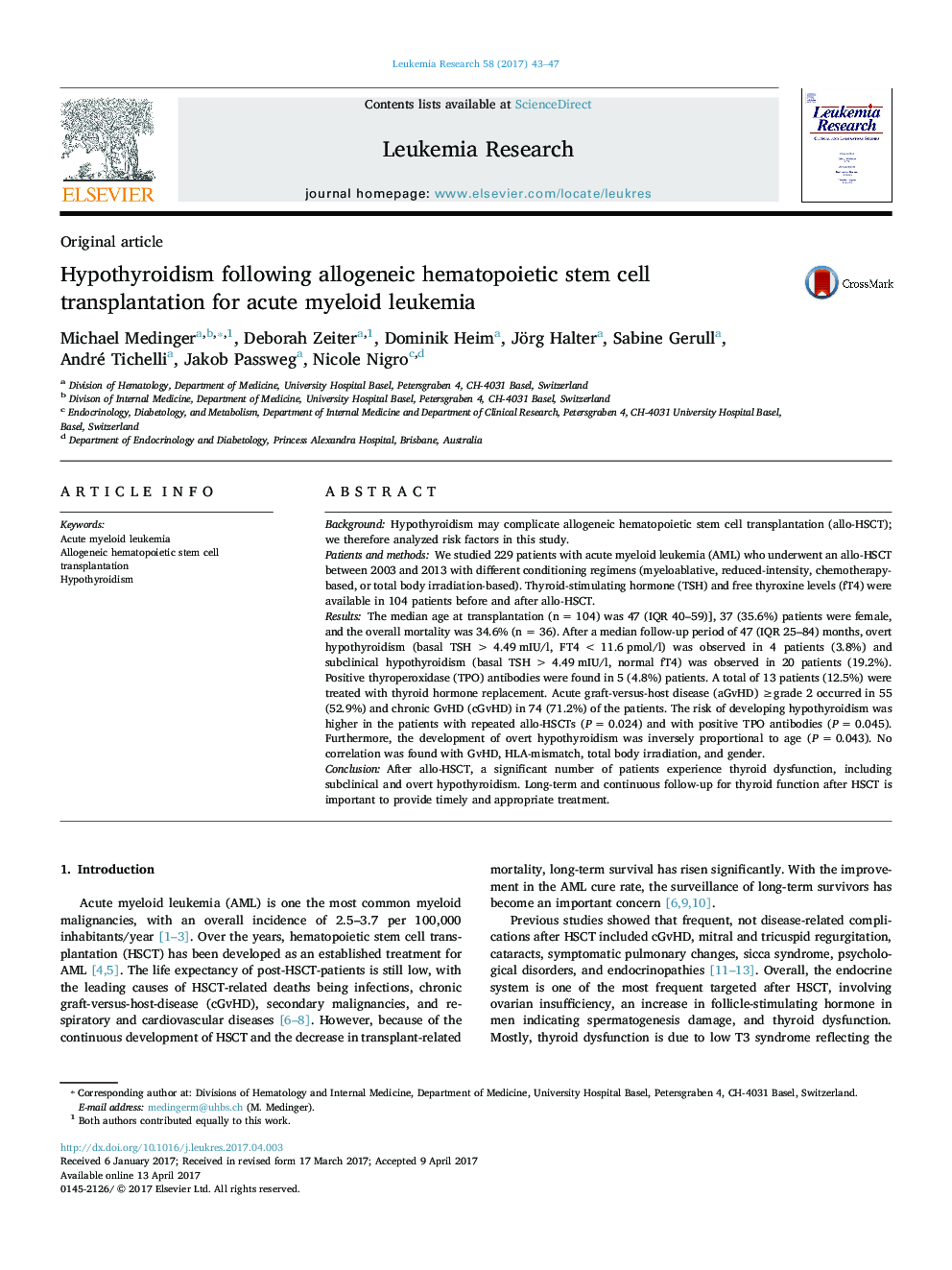| Article ID | Journal | Published Year | Pages | File Type |
|---|---|---|---|---|
| 5527780 | Leukemia Research | 2017 | 5 Pages |
â¢Hypothyroidism is a common late complication after HSCT.â¢Hypothyroidism is associated with positive thyreoperoxidase antibodies, young age at transplantation and multiple HSCT.â¢Long-term and continuous follow-up for thyroid function after HSCT is important.
BackgroundHypothyroidism may complicate allogeneic hematopoietic stem cell transplantation (allo-HSCT); we therefore analyzed risk factors in this study.Patients and methodsWe studied 229 patients with acute myeloid leukemia (AML) who underwent an allo-HSCT between 2003 and 2013 with different conditioning regimens (myeloablative, reduced-intensity, chemotherapy-based, or total body irradiation-based). Thyroid-stimulating hormone (TSH) and free thyroxine levels (fT4) were available in 104 patients before and after allo-HSCT.ResultsThe median age at transplantation (n = 104) was 47 (IQR 40-59)], 37 (35.6%) patients were female, and the overall mortality was 34.6% (n = 36). After a median follow-up period of 47 (IQR 25-84) months, overt hypothyroidism (basal TSH > 4.49 mIU/l, FT4 < 11.6 pmol/l) was observed in 4 patients (3.8%) and subclinical hypothyroidism (basal TSH > 4.49 mIU/l, normal fT4) was observed in 20 patients (19.2%). Positive thyroperoxidase (TPO) antibodies were found in 5 (4.8%) patients. A total of 13 patients (12.5%) were treated with thyroid hormone replacement. Acute graft-versus-host disease (aGvHD) â¥grade 2 occurred in 55 (52.9%) and chronic GvHD (cGvHD) in 74 (71.2%) of the patients. The risk of developing hypothyroidism was higher in the patients with repeated allo-HSCTs (P = 0.024) and with positive TPO antibodies (P = 0.045). Furthermore, the development of overt hypothyroidism was inversely proportional to age (P = 0.043). No correlation was found with GvHD, HLA-mismatch, total body irradiation, and gender.ConclusionAfter allo-HSCT, a significant number of patients experience thyroid dysfunction, including subclinical and overt hypothyroidism. Long-term and continuous follow-up for thyroid function after HSCT is important to provide timely and appropriate treatment.
